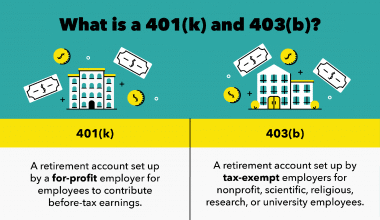If you’re having difficulties paying your credit card bills on time, a debt management plan from a non-profit credit counseling organization may be just what you need.
The plan consolidates your credit card payments into a single monthly, can lower your interest rates in half, and provides a structured path to debt repayment over three to five years.
A debt management plan has a far lower impact on your credit score than debt settlement or bankruptcy because you repay your initial debt. Let’s see the pros and cons of utilizing a debt management plan or company.
What is a Debt Management Plan?
A debt management plan (DMP) is a structured debt payback program that is often handled by a nonprofit credit counseling agency and does not require a loan. MMI works hard with creditors to lower your interest rates and establish a monthly payment that works for you. This expedites debt repayment, saves you money, and usually results in a higher credit score once your program is completed.
A debt management plan has no eligibility conditions. To see if they qualify, clients must first complete a confidential debt and budget analysis with an NFCC-certified credit counselor.
Is a Debt Management Plan the Best Option For You?
DMPs are not suitable for everyone. Depending on the organization, only 10% to 20% of people use this debt reduction option. Depending on the year and how the agency records completions, approximately 50% to 70% complete the plan.
You might consider a DMP if:
- If your unsecured debt, such as credit card debt, is between 15% and 39% of your annual income.
- You have a consistent salary and believe that if you had a lower interest rate, you could pay off your debt in five years.
- While on the plan, you can avoid opening new lines of credit.
When is a Debt Management Plan More Effective?
If you’re battling with revolving debt, the benefits are as follows:
- A single, reduced payment.
- There will be no more (or fewer) phone calls from creditors or collectors.
- The ability to eventually get out of debt.
A DMP is not right for you if:
- You are experiencing difficulty paying secured loans, such as a mortgage or car payment.
- Your salary barely covers necessities like food and utilities.
- You want to keep using your credit cards.
If you are concerned about reducing your expenditure, having to live without credit cards or new credit may be advantageous.
Because you must commit to many months of payments, you must ensure that there is enough money in your budget to do so. Unexpected expenses will arise when you pay the plan over time, so having access to an emergency fund is critical.
It’s possibly feasible that financial coaching is all you need to get caught up. If you determine that a debt management plan is best for you, you should seek assistance with budgeting and money management to avoid falling behind again.
Pros and Cons of a Debt Management Plan
Because everyone’s financial position differs, a debt management plan will function differently for various people. A DMP has advantages and cons, and it is critical to be aware of them before agreeing to one.
So, where to begin? The first step is to identify the type of debt you have. For example, if your mortgage and/or auto loan are dragging down your finances, a DMP will not help because those obligations are secured by your home and car. Unsecured debt, or debt without collateral, such as credit card bills and personal loans, is addressed by debt management strategies.
A DMP can help with this type of debt, but it comes with specific criteria that may or may not work for you. Here are the pros and cons of a debt management plan.
Pros of a Debt Management Plan
- Provides credit card consolidation without requiring you to take on additional debt to pay off your present debt.
- It will assist you in staying more organized and on time with your invoices and payments.
- It generates a realistic monthly budget with the financial aim of getting you out of debt in 3 to 5 years.
- Making regular and on-time payments might help you enhance your credit report and score over time.
- If you’ve fallen behind on your bill payments, a DMP can bring your credit accounts up to date, a process known as “re-aging.” This can also enhance your credit score, while your credit report will most likely still include information regarding past late payments and delinquencies.
- It will avoid you from incurring late fines, which could exacerbate your financial situation.
- Creditors and debt collectors will no longer call.
- A specialist will provide you with financial advice.
Cons of a Debt Management Plan
- To avoid incurring additional debt, you will have to close your credit card accounts.
- You will not be able to obtain new lines of credit, such as a car loan or a loan to remodel your home.
- You must agree to make the single monthly payment on a continuous basis.
- Some of your creditors may refuse to approve the plan, which means you’ll have to pay them separately from the monthly DMP payment.
- A minor enrollment fee and/or monthly maintenance fee may be charged by the credit counseling agency, though some of these may be waived.
If you have a consistent income that you can use to pay off your unsecured debt at a lower interest rate than you’re currently paying, and if you can live without having new lines of credit for the duration of the plan, a debt management plan may be right for you.
Types of a Debt Management Plan
DMPs are classified into two types: for-profit and nonprofit.
#1. For-profit
A for-profit debt management plan, as the name implies, is managed by a company with a business motive. While they provide the same services as non-profit credit counseling agencies that offer debt management plans, they may charge exorbitant fees.
“For-profit agencies might have excellent counselors, but they probably offer many other services that they may push on their clients – whether they’re beneficial or not,” says April Lewis Parks, director of education and corporate relations at Consolidated Credit. “It’s like an investment firm directing you toward funds that pay them high commissions while providing you with low returns.”
You should also be wary of for-profit DMP firms that promise a speedy remedy. A DMP will typically take three to five years to repay your debt. If a debt management plan company offers unrealistic expectations, they most likely are.
#2. Nonprofit
According to the FTC, the majority of credible DMPs come from non-profit organizations. Moreover, depending on your financial condition, several non-profit credit counseling organizations may provide their services for free or at a moderate cost. They also provide instructional materials and additional services or resources to assist you in rebuilding your credit and budgeting more effectively.
According to the FTC, being a nonprofit organization does not imply that services are free, low-cost, or reputable. Some non-profit organizations may conceal excessive fees or encourage you to make “voluntary” payments that add to your debt load.
Read reviews and complaints from trustworthy sites such as Consumer Affairs, BBB, and TrustPilot before selecting a for-profit or nonprofit organization for a DMP.
How to Get Started with a Debt Management Plan
If you believe a DMP is a good choice for you, identify a professional credit counselor and meet with them in person. You can also work with a counselor over the phone or online if you prefer.
Many credit counseling companies, but not all, are nonprofits, and you may wish to limit your search to nonprofits. Begin by looking for agencies that are members of the National Foundation for Credit Counseling or the Financial Counseling Association of America, two certifying organizations, or that have been certified by the Council on Accreditation.
You may prepare by reviewing your credit report and making a list of your existing debts—information that you may need to compile and discuss with your counselor prior to the initial meeting. You can begin by free verifying the accounts mentioned on your Experian credit report online.
Best Debt Management Plan Companies
When researching companies that offer a debt management plan, please inquire about the monthly charge, the setup fee, the length of time it may take to finish the plan, and the types of debt that might be included. Then inquire about the company’s track record. How many people follow through on the plan, and how much money do they save over time?
The following are the best debt management plan companies based on overall client feedback.
#1. American Consumer Credit Counseling ACCC
ACCC, which was founded in 1991, is a non-profit debt management plan company that operates in all 50 states. Its debt management program is intended to be finished in 36 to 60 months and will reduce your monthly payments and interest rates by 30 to 50%. Throughout the process, clients receive continuing support, including debt management education and counseling. The membership price is $39, and the monthly maintenance fee is $7 per account (up to $70).
Who this is perfect for: If you want a credit counseling company that services all 50 states, provides in-person support in 12 states and Washington, D.C., and has a client dashboard with a wealth of finance-related educational resources.
#2. Cambridge Credit Counseling
According to this non-profit credit counseling organization, individuals typically finish the debt management program in 48 months and save approximately $140 per month. Cambridge counselors claim to be able to negotiate interest rates ranging from roughly 22% to 8% on average. The startup and monthly costs differ per state.
Who this is best for: If you prefer to receive your counseling over the phone or via video conferencing, this is the option for you.
#3. GreenPath Financial Wellness Services
Members’ unsecured debts are typically repaid within three to five years. Depending on your state and debt, the one-time beginning charge is from $0 to $50, and the monthly price ranges from $0 to $75.
Who this is best for: If you want to manage your account and check your repayment progress online, this is the option for you. If you prefer in-person counseling and live in one of GreenPath’s 21 states with a physical office.
#4. InCharge Debt Solutions
According to this company, the average consumer completes a debt management plan within three to five years and pays an interest rate of roughly 8%. The startup charge is between $0 and $50, with a monthly fee of the same amount.
Who this is best for: If you want to manage your debt repayment plan through an app, this is the app for you. Six days a week, you can also speak with a live person at InCharge.
#5. Money Management International MMI
MMI is a nonprofit credit counseling firm that operates in all 50 states and provides assistance online, over the phone, and in some cases, in person. A DMP is typically completed within three to five years by members. Set-up and monthly fees are typical $33 and $25, respectively.
Who this is best for: If you need debt counseling around the clock or prefer in-person therapy, which is accessible in 25 states.
Debt Management Plan vs Debt Settlement
It is critical to understand that various relief choices are not the same. In a nutshell, debt management is performed by nonprofit counseling agencies that assist you in lowering your interest rates and monthly payments without damaging your credit score. Debt settlement is a riskier option that entails paying a for-profit company to bargain on your behalf, but it can have an impact on your credit score while you wait for the company to negotiate a lower payment.
Conclusion
If you want to engage with an intermediary to help you build a repayment plan and maybe lower your interest rate and monthly debt payments, a DMP is a good option.
When looking for groups to cooperate with, look into their history. The more people they’ve helped, the older they get. That suggests they’ve seen everything before. Whatever difficulties you have, they have handled many times before.”
You should also check their ratings on reputable review sites and what previous clients have to say about dealing with that particular firm. Not everyone will be happy because humans are messy creatures, and miscommunications happen. However, did those credit counseling agencies respond to complaints and make things right? Did they tell you what happened?
You’ll have a greater chance of choosing a debt management program that suits your needs, goals, and budget if you do your homework.
Related Articles
- DEBT MANAGEMENT: How It Works; Plans and Programs
- Credit Reporting Bureau: What is Credit Reporting Bureau?
- How to Use Credit Card Debt Consolidation






